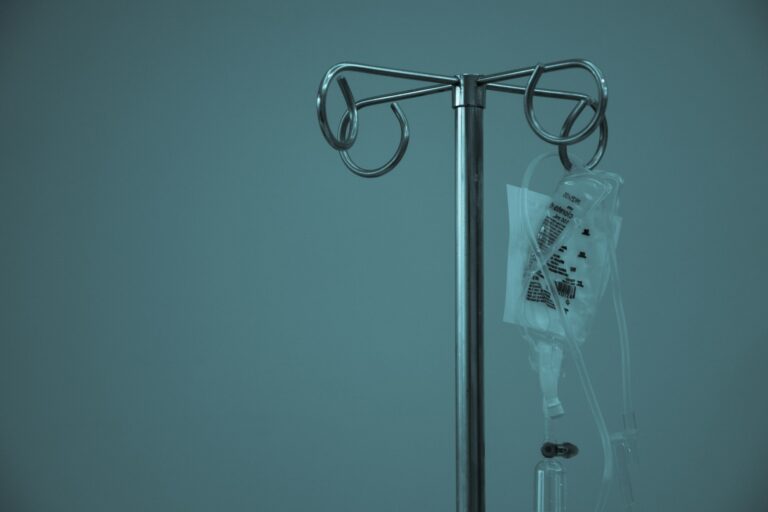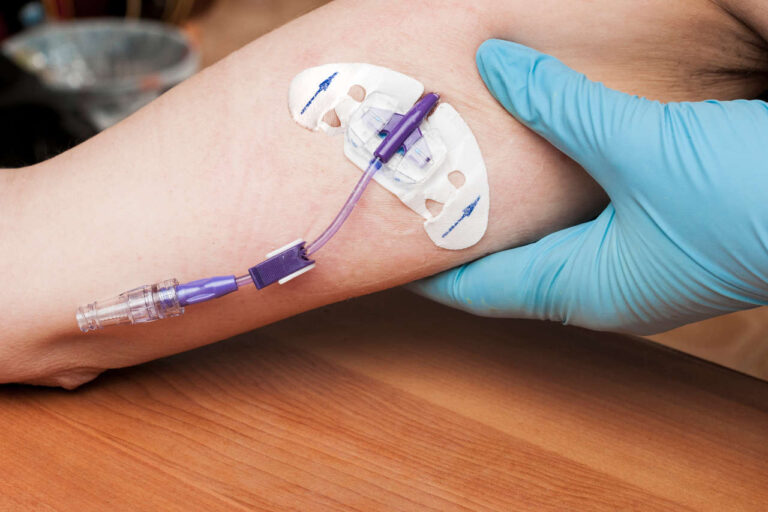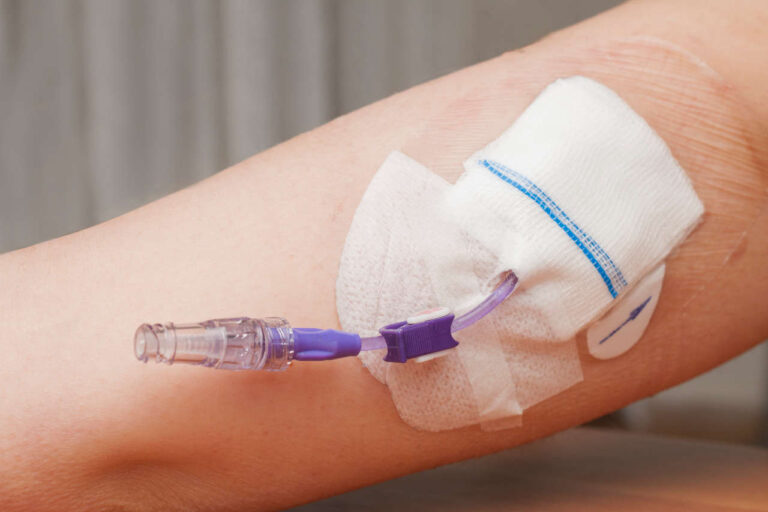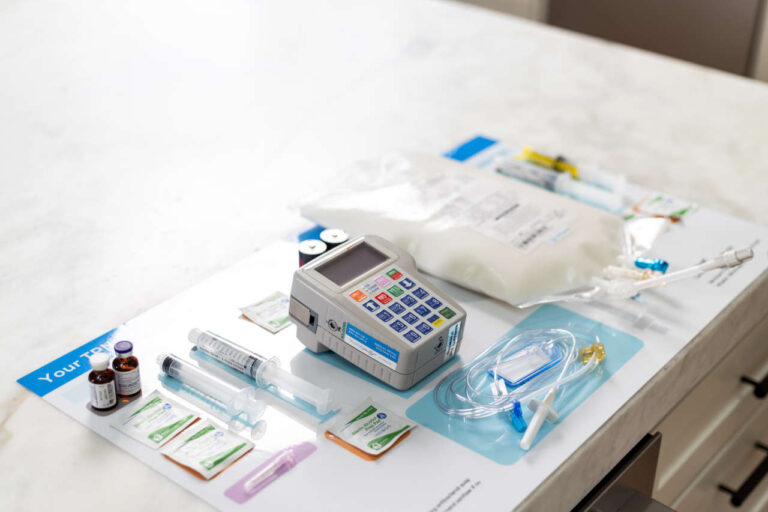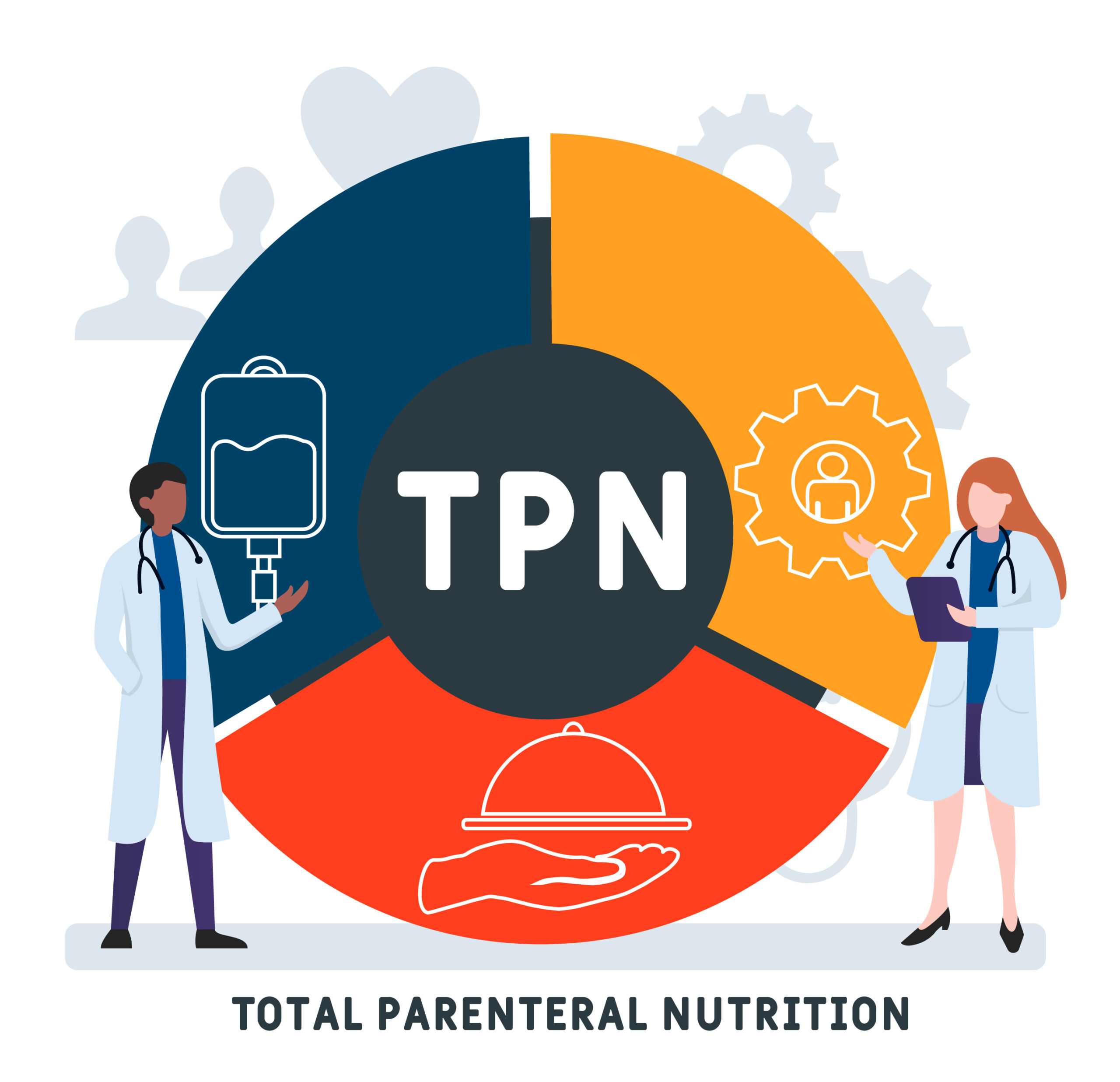
Being placed on total parenteral nutrition (TPN) is a common course of treatment for those unable to digest food and absorb necessary nutrients through their gastrointestinal tract.
IV Fluids Fully in Stock
Consistent availability, uninterrupted careIf you’ve recently been prescribed TPN as part of your medical treatment, you may have a few questions regarding this unorthodox method of feeding. Receiving your daily nutrients intravenously versus eating meals is a drastically different process. Find the answers to some of the most frequently asked questions regarding TPN.
Can you eat while on TPN?
A: This depends. Some patients are placed on TPN to supplement nutrients. These types of patients can take in food and drink orally. Other patients on TPN are unable to properly digest food through their GI tract and attempting to do so can cause complications like blockages or dehydration. Depending on your medical condition, you may be able to continue eating while on TPN. Please speak to your physician to find out what they recommend based on your current medical situation.
How long does TPN last?
A: TPN infusion is generally administered over 24 hours when starting the treatment. Over time, infusion times can be shortened to anywhere from 12 to 18 hours.
Do you have bowel movements while on TPN?
A: Patients on TPN do experience bowel movements, although not as frequently. The digestive system will continue to produce digestive fluids and shed old cells, which will need to be expelled by the body.
What are the side effects of TPN?
A: Common side effects of TPN include malnutrition, dehydration, hyperglycemia and hypoglycemia as a result of an unbalanced TPN formula. These issues are typically resolved easily by adjustments made to the TPN formula by a specialized nutritionist. TPN patients are also at risk for infection from improper care of the IV site or unsanitary handling of their TPN supplies. More serious complications include fatty liver and liver failure, which can result from long-term use of TPN.
What is the life expectancy for someone on TPN?
A: When determining the outcome for patients being treated with TPN, the underlying cause of the intestinal failure needs to be considered, and this would affect the long-term survival prospect for those patients. TPN-dependent patients have a 3-year survival chance of about 65 to 80%, and for the 20 to 35% of patients who do not respond well to TPN, intestinal transplantation may be a life-saving option.
How long do I have to be on TPN?
A: TPN can be used both short-term and long-term, depending on the reason it has been prescribed. For some patients, TPN is part of a comprehensive treatment plan to transition back to oral feeding. For other patients, TPN will become a lifelong journey. Open discussion with your doctor and health care providers can help you understand your options when it comes to feeding.
Understanding the intricacies of TPN will take some time and experience. However, your doctor and health care providers are there to help you every step of the way. Remember to bring up any questions or concerns you may have with your doctor and join support groups to learn tips and advice from those who share your experiences. The more you understand about TPN, the more equipped you will be for the road ahead.





